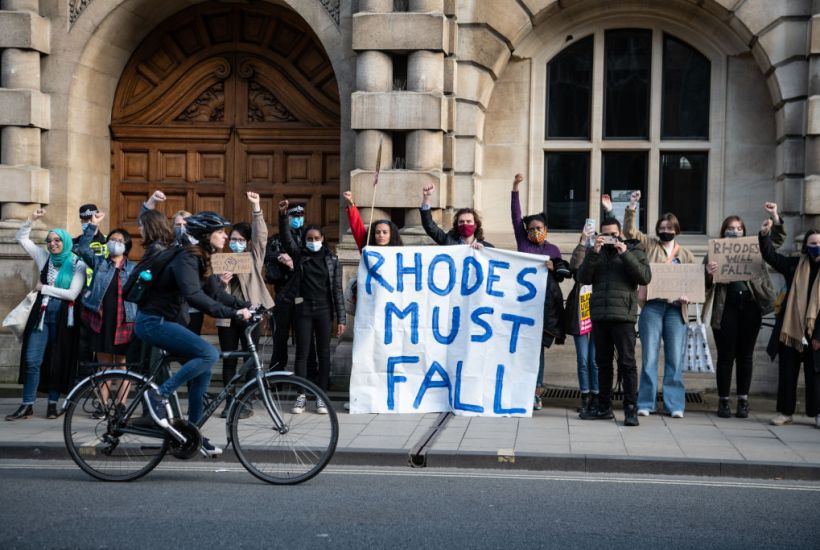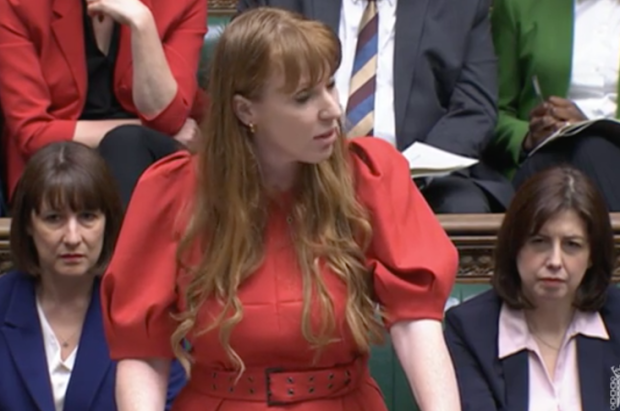Oriel College, Oxford’s decision to retain the statue of Cecil Rhodes has generated the usual voluminous fury. It has also shown it to be just that: noise. The university’s willingness to face down activists could mark a turning point in proving that when campaigners don’t get their way, the world continues to turn.
This might sound obvious but it marks a welcome change to the often depressing cycle of inevitability of protest-social media storm-surrender. All too often, it seems power really does lie with the various campaign groups, charities, and commentators pushing for change. The fact that Rhodes hasn’t fallen, whatever you might think of the man himself, shows that it doesn’t. This is why they are activists rather than policymakers.
Rhodes is staying over Oriel’s doorway because the government effectively turned around and said ‘no’, and that put an end to the matter. For all the claims to be on the right side of history, if the government is willing to put up with a week or so of bad headlines before the press loses interest and changes focus, the repercussions are minimal.
The observation that Twitter is not the real world is old, but worth bringing up once more. The panic about social media undermining democracy focused on the threat posed by populist disinformation, most notably Donald Trump’s ability to express himself without the filter traditionally provided by the press. A more subtle danger is that because our political and journalistic classes are avid users of Twitter, which is not a representative sample of the population, they can start to mistake the simulation for reality.
The group described by More In Common as ‘progressive activists’ may be an outsize presence on social media – making up about half of those who say they shared political content online – but they form only 13 per cent of the population as a whole. This explains why the Rhodes must fall row has blissfully failed to trouble most people. Of those who do take an interest, a YouGov poll suggested that a majority of respondents believe the statue should stay; 44 per cent believed we should be proud of British colonialism.
This same logic – of the gulf between those shouting loudly on social media and everyone else – helps explain why Boris Johnson’s leadership remains unscathed, despite the furious string of ‘scandals’ delighted in by the press. What interests Westminster is not what interests Westmorland. This is not because people in the latter are totally disengaged but because they are more interested in whether their bins have been emptied than whether Boris paid for his wallpaper.
A similar mistake is made when people assume a social media firestorm will lead to a major shift in polling outcomes, or indeed when they focus on short-term polling fluctuations over long-term trends.
As for Rhodes, a coloniser among colonisers (British, Dutch, and Matabele) it is doubtful that his removal would lead to activists quietly going away. Victory on one issue means they would probably simply move on to the next one. If an institution is going to give ground, it should do so because it is convinced solely of the arguments put forward, rather than in search of a peaceful life.
Rhodes undoubtedly will not be the last controversy of this sort. As the historian Tom Holland has noted, iconoclasm is a common theme wherever people steeped in a Christian heritage experience an upsurge in moral fervour. Britain has a long history of changing moral frameworks, and there are plenty of other targets out there.
<//>
Got something to add? Join the discussion and comment below.
Get 10 issues for just $10
Subscribe to The Spectator Australia today for the next 10 magazine issues, plus full online access, for just $10.



















Comments
Don't miss out
Join the conversation with other Spectator Australia readers. Subscribe to leave a comment.
SUBSCRIBEAlready a subscriber? Log in